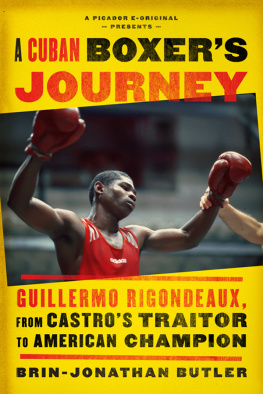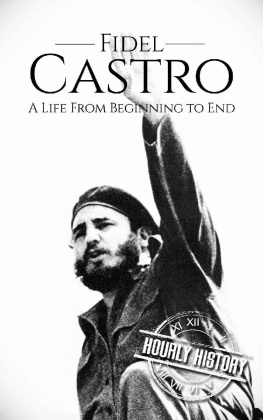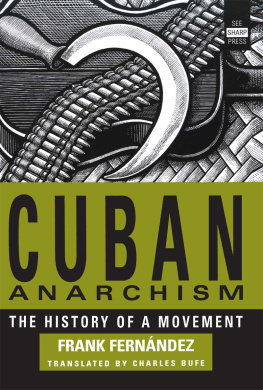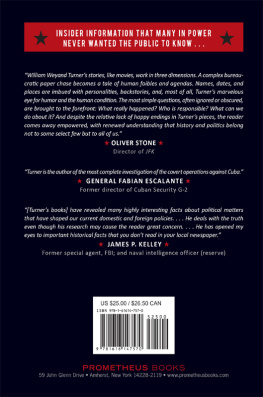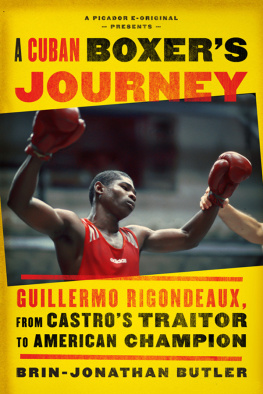Brin-Jonathan Butler - A Cuban Boxers Journey: Guillermo Rigondeaux, From Castro’s Traitor to American Champion
Here you can read online Brin-Jonathan Butler - A Cuban Boxers Journey: Guillermo Rigondeaux, From Castro’s Traitor to American Champion full text of the book (entire story) in english for free. Download pdf and epub, get meaning, cover and reviews about this ebook. year: 2014, publisher: Picador, genre: Detective and thriller. Description of the work, (preface) as well as reviews are available. Best literature library LitArk.com created for fans of good reading and offers a wide selection of genres:
Romance novel
Science fiction
Adventure
Detective
Science
History
Home and family
Prose
Art
Politics
Computer
Non-fiction
Religion
Business
Children
Humor
Choose a favorite category and find really read worthwhile books. Enjoy immersion in the world of imagination, feel the emotions of the characters or learn something new for yourself, make an fascinating discovery.
- Book:A Cuban Boxers Journey: Guillermo Rigondeaux, From Castro’s Traitor to American Champion
- Author:
- Publisher:Picador
- Genre:
- Year:2014
- Rating:5 / 5
- Favourites:Add to favourites
- Your mark:
- 100
- 1
- 2
- 3
- 4
- 5
A Cuban Boxers Journey: Guillermo Rigondeaux, From Castro’s Traitor to American Champion: summary, description and annotation
We offer to read an annotation, description, summary or preface (depends on what the author of the book "A Cuban Boxers Journey: Guillermo Rigondeaux, From Castro’s Traitor to American Champion" wrote himself). If you haven't found the necessary information about the book — write in the comments, we will try to find it.
A Cuban Boxers Journey: Guillermo Rigondeaux, From Castro’s Traitor to American Champion — read online for free the complete book (whole text) full work
Below is the text of the book, divided by pages. System saving the place of the last page read, allows you to conveniently read the book "A Cuban Boxers Journey: Guillermo Rigondeaux, From Castro’s Traitor to American Champion" online for free, without having to search again every time where you left off. Put a bookmark, and you can go to the page where you finished reading at any time.
Font size:
Interval:
Bookmark:


The author and publisher have provided this e-book to you for your personal use only. You may not make this e-book publicly available in any way. Copyright infringement is against the law. If you believe the copy of this e-book you are reading infringes on the authors copyright, please notify the publisher at: us.macmillanusa.com/piracy.
Marco Polo describes a bridge, stone by stone.
But which is the stone that supports the bridge? Kublai Khan asks.
The bridge is not supported by one stone or another, Marco answers, but by the line of the arch that they form.
Kublai Khan remains silent, reflecting.
Then he adds: Why do you speak to me of the stones? It is only the arch that matters to me.
Polo answers: Without stones there is no arch.
Italo Calvino, Invisible Cities
A revolution is a struggle to the death between the future and the past.
Fidel Castro
La Lucha

Treason for money is one of the favorite weapons of the United States to destroy Cubas resistance.
Fidel Castro
Ninety miles off the shores of Cuba, in the United States, boxings story was always pretty easy to follow. Maybe that was the point. Whats more basic in exposing a man or a people than what theyre willing to stand for or stand up to? After Jack Johnson became the first African American heavyweight champion, one great white hope after another attempted to dethrone him and everything he represented. James Braddock was the workingmans champion during the Great Depression. When Joe Louis took on Max Schmeling in the 1930s, it wasnt lost on anyone that he was championing a moral war against Hitler and fascism. Prior to their two fights, when had white America ever cared so deeply and gotten behind the struggle of an African American? In the thick of the 1960s Muhammad Ali challenged the establishment over Vietnam. By the end of the twentieth century, there were few more suitable emblems of unfettered capitalism than boxing promoter Don King waving the Stars and Stripes and shouting Only in America! at one of Mike Tysons billion-dollar stimulus packages to the Las Vegas economy. In one of the most recent examples of boxings power to reveal the nations true character, the justice system itself postponed the incarceration of Floyd Mayweather Jr. for domestic abuse on the basis of his economic value to down-and-out Vegas.
Boxing illuminates just as much about the country only ninety miles south of the United StatesCuba. Cubans have always been haunted by the sea. The 228 miles dividing Havana and Miami might constitute one of the largest graveyards on earth. The area is a minefield of fatal dangers many Cubans have crossed blindfolded: the force of the Gulf Stream, volatile weather, shark-infested waters. Estimates vary, but as many as 40 percent of those who have attempted to cross the Florida Straits have perished. Since Fidel Castro rose to power in 1959, ending four hundred years of colonialism, more than a million Cubans have abandoned their lives in their homeland. The most corrosive legacy that Castro will leave behind for his people might be that of the broken family. The waves lapping against Cubas shore have long felt as much like the bars of a prison cell as a gateway to freedom. The torment and longing of exile has irrevocably damaged the soul of the Cuban people, and this anguish over an impossible choice unrelentingly shadows them regardless of their choice to stay or to leave.
Enter into this fraught dilemma the Cuban athlete, perhaps the most lucrative human cargo left on earth. The first slaves were brought to Cuba around 1520, and political failures on both sides of the Florida Straits have encouraged a thriving modern slave trade. Today, at bargain-basement prices, extraordinarily talented human beings are bought and sold in the marketplace. Contracts are signed with these Cubans under duress and in languages they cant comprehend. Once free of Cuba, many of these athletes never come close to earning enough money to repay the debt of their sale, trafficking, and survival in the United States to their benefactors. Many of the athletes have been unable to endure the guilt of abandoning their families, let alone the horrific voyage inside the smugglers boat.
Indeed, despite demonstrating bottomless courage by having had more than four hundred fights inside a ring by the age of twenty-seven, it was the journey to America, in February 2009, that Guillermo Rigondeaux would later describe as the most traumatic experience of his life. And that was long before he got around to discussing the toll of potentially never seeing his country, home, or family again. Compounding this tragedy is the irony that Rigondeaux is the most capable human being I have ever witnessed defending himself inside a ring while also remaining one of the most vulnerable and defenseless outside a ringat least since he arrived in the United States. It was his tragedy even more than his talent that compelled me to drop everything and take the considerable risks I did to explore what I could of the depths of his story, as well as the broader, troubling realities his experience exposed about Cuban and American cultures and their values.
The mantra of all Cuban boxers is la lucha (the struggle). Boxers across the country train under Fidels words, painted on gym walls: Our athletes are and always have been an example for all. For ordinary Cuban citizens, the struggle in the ring reflects their day-to-day struggle of survival. By Castro and the systems design, it is impossible to discuss sport in Cuba without exploring life in Cuba. Boxing has always been a Rosetta Stone into the character of Cuban society. Cubans enter the ring in defense of their families, their neighborhoods, their society, and thenand only thentheir self-respect. As the conditions of life grew more desperate and more Cubans lived what many considered a broken dream, an increasing number of boxers risked death or imprisonment, abandoning everything they knew for the chance to shipwreck into the American Dream. While Castro branded any defector a selfish traitor to their people and their revolutionary cause, each ordinary Cuban citizen was forced to confront the harsh truth of whether, in fact, it was Castros Cuba that had betrayed them. If historically the Cuban boxer refusing millions to leave the island was an example of all that had succeeded with the revolution, surely those boxers that accepted the bait to abandon everything they knew was equally an example of a decaying revolution.
In the 1970s, in the prime of his youth, Tefilo Stevenson, Cubas most famous champion, was offered $5 million to defect and fight Muhammad Ali. Stevenson responded by asking of the offer itself, What is one million dollars compared to the love of eight million Cubans? While all Cubans were intimately familiar with Stevensons words, only those who agreed were permitted to speak openly about how they felt. For the rest, even in the privacy of their own homes, they had to whisper.
In the 1980s and 1990s, Tefilo Stevensons successor, Flix Savn, also a three-time heavyweight Olympic champion, rejected Don Kings offer of $25 million to leave Cuba in order to fight Mike Tyson. At the rate of pay the Cuban government extended to Savn at that time, he would have had to work roughly one million years to earn what America was offering him to fight inside one Las Vegas casino or another. Im already a millionaire, Savn explained to me. If I need to, I can knock on any door in my country and find a million friends to offer me a peso or a piece of bread. I would never trade the love of my people for all the money in the world.
Font size:
Interval:
Bookmark:
Similar books «A Cuban Boxers Journey: Guillermo Rigondeaux, From Castro’s Traitor to American Champion»
Look at similar books to A Cuban Boxers Journey: Guillermo Rigondeaux, From Castro’s Traitor to American Champion. We have selected literature similar in name and meaning in the hope of providing readers with more options to find new, interesting, not yet read works.
Discussion, reviews of the book A Cuban Boxers Journey: Guillermo Rigondeaux, From Castro’s Traitor to American Champion and just readers' own opinions. Leave your comments, write what you think about the work, its meaning or the main characters. Specify what exactly you liked and what you didn't like, and why you think so.

